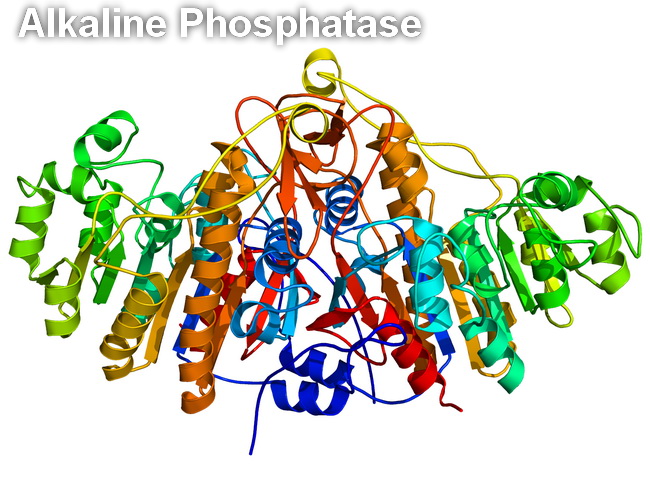Paget Disease of Bone : Alkaline Phosphatase


Comments:
Serum alkaline phosphatase (ALP): ALP is an 86 kD homodimeric protein belonging to the family of zinc metalloproteinases involved in dephosphorylating compounds. Four isozymes are found in humans - intestinal, placental, germ cell, and tissue non-specific (found in liver, kidney and bone/osteoblasts). Total ALP and bone ALP are the most important bone turnover markers (BTM) in Paget disease of bone (PDB). ALP is usually performed as a part of liver function tests. ALP levels provide an objective assessment of disease activity, response to treatment and biochemical relapse in PDB. Total ALP levels correspond closely with skeletal involvement on X-rays as well as isotope bone scan and are often 20-30 times the reference range. Total ALP levels are unreliable in the presence of liver or biliary tract disease. They may also be normal in monostotic PDB. In such cases, other more specific BTMs are used. Other Laboratory Findings: Serum acid phosphatase may also be high normal or slightly elevated. Serum calcium and phosphorus levels are within reference ranges. Patients with extensive bone involvement may experience hypercalcemia, hypercalciuria and even stone formation if they are immobilized or bed-ridden for any reason. The diagram shows ribbon structure of dimeric form of bacterial alkaline phosphatase. Image Credit: Boghog2, Public domain, via Wikimedia Commons.



